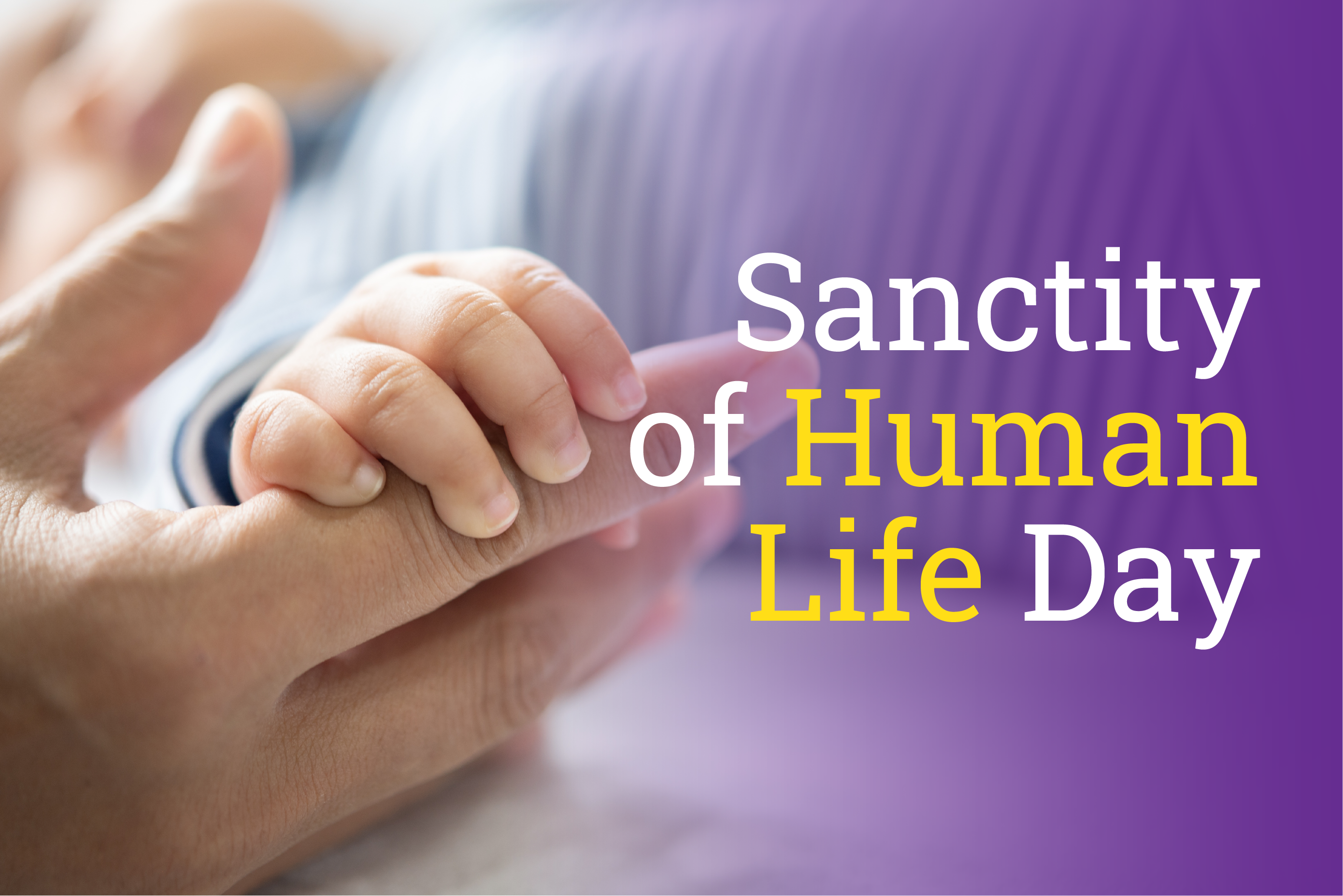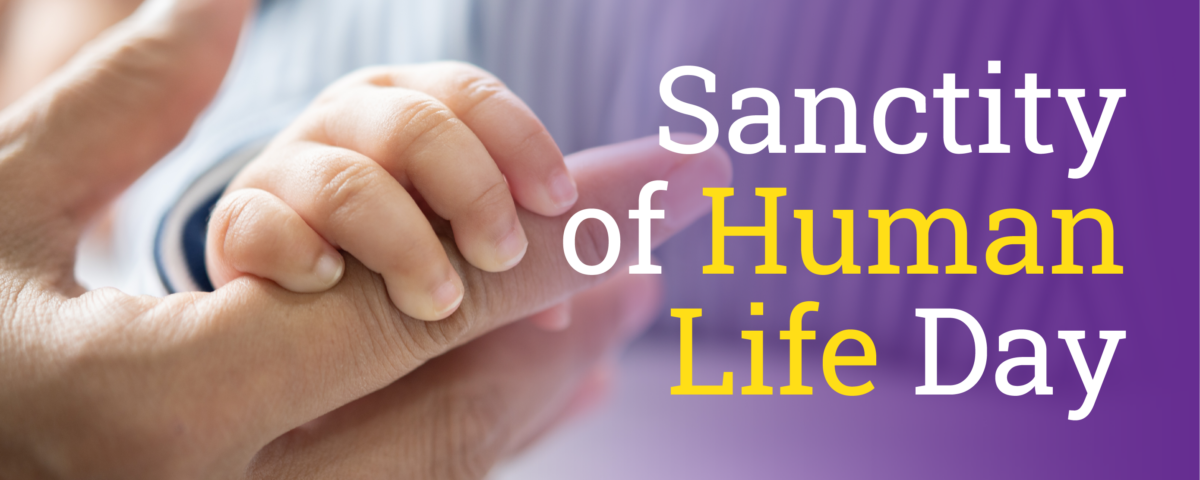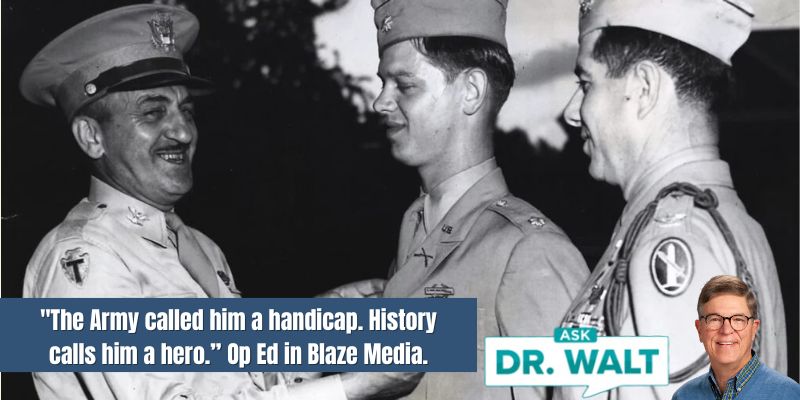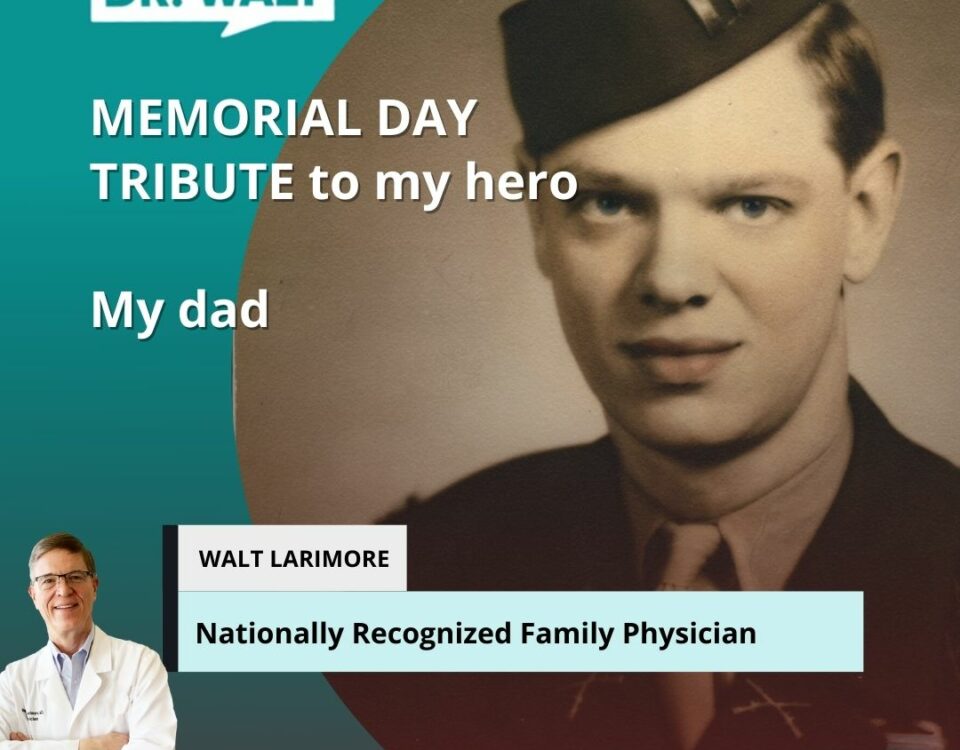
January 21, 1945 — Phil and his men are livid as one of FDR’s cabinet members is actually motivating the Nazis
January 21, 2025
January 22, 1945 — A frozen hell would begin at midnight
January 22, 2025President Ronald Reagan issued a presidential proclamation on January 13, 1984, designating Sunday, January 22, 1984 as National Sanctity of Human Life Day. He then issued the proclamation annually thereafter, designating Sanctity of Human Life Day to be the closest Sunday to the original January 22 date. Both Presidents George H. W. Bush and George W. Bush did the same. At the end of the first year of his first term, President Donald Trump issued a proclamation declaring Monday, January 22, 2018 to be National Sanctity of Human Life Day. And, according to the Catholic Church in the United States, January 22 (or the 23rd if the 22nd is a Sunday) is observed as the “Day of Prayer for the Legal Protection of Unborn Children.”

In honor of the National Sanctity of Human Life Day, I’m posting part of a commentary from one of my favorite culture commentators, Dr. Jim Dennison about the Sanctity of Human Life Day: Three practical ways to advance the cause of life:
This cultural moment is a call to each of us personally, an opportunity that extends to every moral decision we face today.
Reasons women choose abortion
Let’s begin with the reasons women say they chose abortion:
- Not financially prepared: 40 percent
- Not a good time: 36 percent
- Issues with partner: 31 percent
- Need to focus on other children: 29 percent
- Interferes with future plans: 20 percent
- Not emotionally or mentally prepared: 19 percent
Only 12 percent say they chose abortion because of a “health issue.” (Only 1.14 percent of abortions are actually performed for the mother’s life or physical health.)
When a woman aborts her child, she can typically do so privately: 63 percent of all abortions last year were the result of “medication abortions” rather than visits to an abortion clinic. As a result, presidential proclamations, state laws restricting abortion access, sermons, and articles like this one are unlikely to be persuasive when the actual abortion decision is made.
What is true of abortion is true of most of our moral decisions, from pornography viewed digitally on personal devices, to affairs arranged online, to “pods” enablingpeople to die by suicide at home: they can be made privately, away from the influence of government officials or institutions.
“Jews have no dealings with Samaritans”
You and I have a personal role to play in protecting preborn children, a calling that pertains to every moral choice our society faces today.
The good news is that it is a call every believer can answer in ways that save lives and change souls.
In John 4, we find Jesus in a conversation most people in his day would have found shocking. He was a Jew talking with a Samaritan at a time when “Jews have no dealings with Samaritans” (John 4:9), a man talking to a woman in public, and a rabbi talking to a woman who has had five husbands and is now living with a man who is not her husband (John 4:18).
Nonetheless, by the end of their conversation, she sought and received the “living water” of Christ (vv. 13–15) and was so transformed that she led her entire village to meet him (vv. 28–30), with the result that “many Samaritans from that town believed in him” (v. 39) as “the Savior of the world” (v. 42).
This story is in God’s word so we can make Jesus’ strategy our own. With regard to abortion:
One: Choose to care for women in crisis.
Jesus chose to go to Samaria (John 4:4) out of his desire “to seek and to save the lost” (Luke 19:10). He loves each of us as if there were only one of us (St. Augustine), including women considering abortion.
No woman wants to be in this situation. The physical pain alone is significant, not to mention the emotional toll she is experiencing. At such a time, she needs the compassion of those who seek to help her choose life for her preborn child.
Two: Meet their practical needs.
Jesus went to this woman at Jacob’s well, knowing that she would never come to him. Given her personal circumstances, she would not have joined the crowds listening to him teach, much less sought to join his band of disciples. She came to the well for water, so he started their conversation with water (John 4:7).
In the same way, we can ask God to lead us to help women considering abortion, then engage in practical ways to meet their practical needs. If we do not know such women personally, we can still serve them through those who do. Pro-life ministries help women facing at-risk pregnancies with financial, relational, and counseling resources. We can support these ministries with our intercession, finances, and time, knowing that every life they save is an extension of our faithfulness to God’s call.
Three: Lead to the “living water” of Christ.
Jesus began with water and led the Samaritan woman to the “living water” found only in him. We can do the same as we pray for those considering abortion (1 Timothy 2:1), share our faith story (cf. Acts 22:1–21), explain the gospel (John 3:16), and answer their questions (cf. Isaiah 1:18). (For help, see my new website article, “Why would ministers ‘bless’ abortion clinics? How to counter popular abortion arguments.”)
Ultimately, we help them most when we help them meet Jesus for themselves. He alone can change their hearts and transform their lives.
What is true of abortion is true of other moral issues: When we care with the compassion of Christ, meet practical needs in his power, and lead people to a personal encounter with our living Lord, we become change agents on a scale that transforms souls and society.
In Culture Making: Recovering Our Creative Calling, Andy Crouch writes,
“To be Christian is to stake our lives on this belief: the only cultural goods that ultimately matter are the ones that love creates.”
What “cultural goods” matter most to you today?
Quote for the day:
“Life’s most persistent and urgent question is, ‘What are you doing for others?’” — Dr. Martin Luther King Jr.
Long-time readers know that Barb and I love and support Pregnancy Resource Centers. There are over 2,500 of these facilities across the U.S., and many in other countries, doing wonderful work every day. It’s been our privilege for over two decades to speak at the fund-raising banquets for many of them.
And, we’ve served and supported our local Life Network Pregnancy Resource Centers here in Colorado Spring for 25 years.
If you’re not currently involved with one of these amazing ministries, there are two national groups that can help you locate the center closest to your location, Care Net and Heartbeat International. There’s also a Crisis Pregnancy Center Map available here.
These centers thrive with solid foundations of prayer, donors, and volunteers. Call the one nearest to you, and find out how you can become involved in becoming a change agent that creates love for these pregnant women, their unborn children, and in many cases, the fathers, in your community.
Be a blessing, and you’ll be blessed.
© Copyright WLL, INC. 2025. This blog provides healthcare tips and advice that you can trust about a wide variety of general health information only and is not intended to be a substitute for professional medical advice, diagnosis, or treatment from your regular physician. If you are concerned about your health, take what you learn from this blog and meet with your personal doctor to discuss your concerns.




